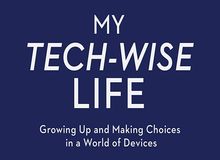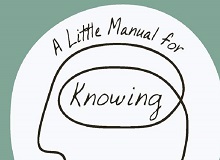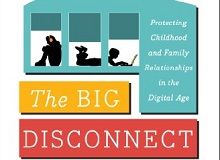


Two children's associations are suing France's leading internet providers. 1 out of 3 French 12-year-olds has been exposed to pornography.

My Apple Watch lights up to pay, and in my pocket, I feel the buzz of my banking app notification: £2.45 debited for a large latte. Beep, the Oyster card taps seamlessly on the Number 36 bus.

“Our audience grew in the months of the pandemic”, says the team behind the evangelical programme aired every Sunday on the Spanish public television. The Portuguese project seeks to better reach children.

Understanding new generations is an essential part of a true mission mind in this rapidly changing world. An article by Steve Sang-Cheol Moon.

The developers of the ‘Heroes 2’ video game app hope that it will be a tool to bring the message of Jesus to new generations.

Italy negotiates a new government as the third wave of the pandemic hits the country. The Evangelical Alliance calls on Christians to avoid “conspiracy narratives”.

This book enables us to extend the conversation and consider further how to put people not devices at the centre of our lives.

Pandemic has emphasized our own inadequate material and naturalistic assumptions about reality. An article by Stephen Ko, Paul Hudson, and Jennifer Jao.

Jonathan Ebsworth of Tech Human shares practical tips. “Real embodied human relationships are messy and difficult, but it is where we can find true love and acceptance; even if the digital world feels more accepting”.

Broadening the range of our capacity to wonder is at the heart of epistemology. To fail to do so is to slip dangerously into knowledge as impersonal and disembodied.

Leticia Porto, organiser of the Spanish 'Pornography, Children and Women Congress': “Pornography is a school of inequality between women and men in the 21st century”.

Europe and other regions in the world are trying to control the power of large companies such as Amazon, Google or Alibaba. But there is no agreement about what the rules should be, says expert Jonathan Ebsworth.

The smaller number create groups that have a higher level of sharing and intimacy, this is seen in the Bible discussions, but also in the conversation afterwards.

The online ministry of pastor José Manuel Sierra’s church in Tenerife grew exponentially as the pandemic hit Spain. “Some have converted while watching the worship services, they have lots of questions”.

I had tried a number of solutions. Buying a new mattress. Reducing caffeine. Eating better. I didn’t know what else to try until the major culprit revealed itself: technology.

We need a deeper understanding which transcends the distorted reflections of ourselves that we find in our own technology.

The European Freedom Network will hold its “Bridge Conference” online as anti-trafficking groups learn to adapt to the Covid-19 context. Internet security, the growth of pornography addiction and the increased vulnerability of trafficked women are some of the challenges, says Leanne Rhodes.

Large-scale use of algorithms has the potential to cause severe harm to individuals and communities. Lessons from the 2020 public examination results fiasco in the UK.

Be personal in your message, but remember it is out there for all.

A theology of digital technology written by a professor of computer science who benefited from fruitful interactions with his colleagues in Christian philosophy and theology.

Technology is fast encroaching on family primacy and we are seeing an increasingly premature loss of childhood innocence. The author encourages parents to be approachable, calm, informed and realistic.

People suffering of certain long-lasting illnesses have become used to self-confinement. But many young people also feel increasingly isolated. What can our churches do to respond to this phenomenon?

Norwegian politicians took one more step in the direction of a society where babies are regarded a commodity to be ordered and traded, not as a child created in the image of God.

The “potentially harmful statements” were aired by LoveWorld, a broadcaster owned by a Nigerian megachurch.

The 2020 World Press Freedom Index shows that “China censored their major coronavirus outbreaks extensively”. Norway is at the top and North Korea becomes the most dangerous country for journalists.

Las opiniones vertidas por nuestros colaboradores se realizan a nivel personal, pudiendo coincidir o no con la postura de la dirección de Protestante Digital.